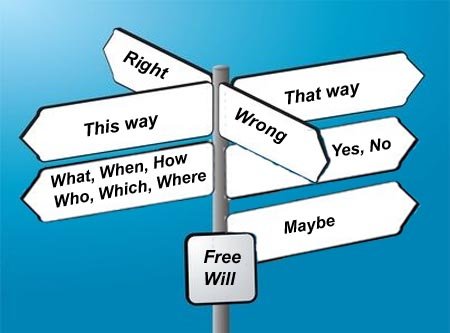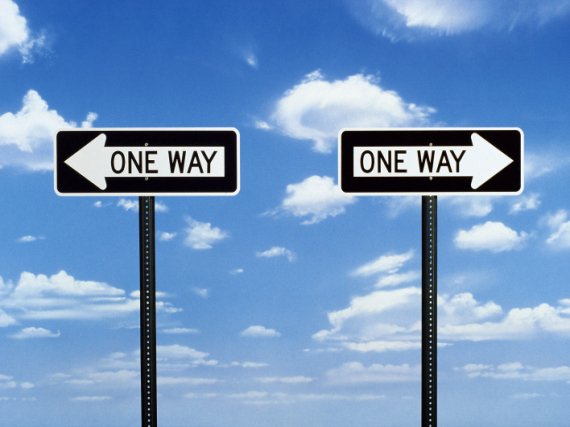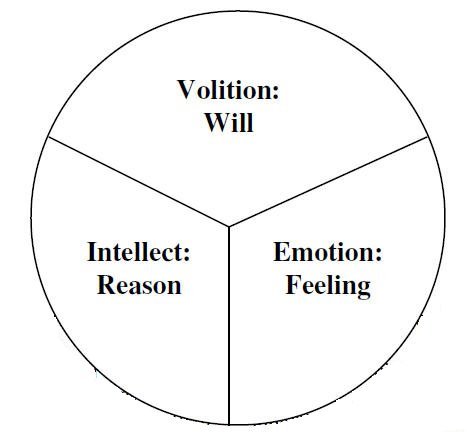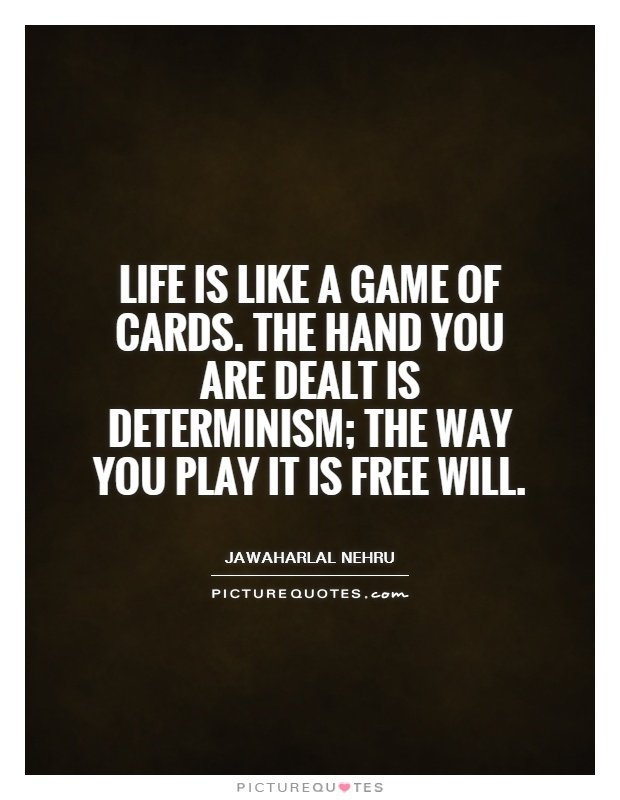Nature of Human Action Presupposes The Origin of Thinking
Nature of Human Action Presupposes The Origin of Thinking

Image Source
Human relies upon two principle factors, the motives and the character, on the off chance that one sees men as all similar, or the contrasts between them as insignificant, at that point their will shows up as decided from without by the conditions which come to meet them. In any case, if one remembers that a man receives a thought, or mental picture, as the motive of his action just if his character is to such an extent that this mental picture stirs a desire in him, at that point he shows up as decided from within and not from without. Presently on the grounds that, as per his character, he should first embrace as a motive a mental picture given to him from without, a man trusts he is free, that is, autonomous of outside motivations.
Reality, as indicated by Eduard von Hartmann, is that despite the fact that we ourselves initially receive a mental picture as a motive, we do as such not subjectively, but rather as indicated by the need of our characterological disposition, that is, we are definitely not free. Here again the contrast between motives which were permitted to impact simply after a man penetrated them with their consciousness, and those which they take after with no reasonable knowledge of them, is completely disregarded.
This leads straight to the point of view from which the subject will be considered here. Do we have any privilege to consider the topic of the freedom of the will without anyone else by any means? Also, if not, with what other inquiry must it essentially be associated? In the event that there is a contrast between a conscious motive of action and an unconscious urge, at that point the conscious motive will bring about an action which must be judged uniquely in contrast to one that springs from dazzle drive. Consequently the principal question will concern this distinction, and on the aftereffect of this request will depend what disposition we might need to take towards the topic of freedom.

Image Source
Knowledge of the reasons of action
Too little consideration has been given to this since this was attacked to what is truly an indivisible, man. We have recognized the knower and the doer and have let well enough alone for account definitely the person who matters above all else - the knowing doer. It is said that man is free when he is controlled just by his reason and not by his animal passions. Or, on the other hand, that to be free intends to have the capacity to decide one's life and action by purposes and ponder decisions.
Nothing is picked up by attestations of this sort for the inquiry is simply whether reason, purposes, and decisions exercise an indistinguishable sort of impulse over a man from his animal passions. On the off chance that without collaboration, a sane choice rises with a similar need with which yearning and thirst emerge, at that point must need to obey it, and freedom is a deception. To be free does not intend to have the capacity to want as one wills, however to have the capacity to do as one wills. This thought has been communicated with extraordinary clearness by the poetphilosopher Robert Hamerling.
Man can absolutely do as he wills, yet he can't want as he wills, since his wanting is dictated by motives. He can't want as he wills? Give us a chance to consider these expressions all the more nearly. Freedom of will would then mean being ready to want without ground, without motive. In any case, what does wanting mean if not to have grounds for doing, or endeavoring to do, this instead of that, to want something without ground or motive is want something without wanting it. The idea of wanting can't be separated from the idea of motive.

Image Source
Without a deciding motive the will is a void workforce; just through the motive does it end up noticeably dynamic and genuine. It is, accordingly, very genuine that the human will is not free in light of the fact that its heading is constantly dictated by the most grounded motive. Yet, then again it must be conceded that it is silly, conversely with this unfreedom, to talk about a possible freedom of the will which would comprise in being ready to want what one doesn't want. Just motives as a rule are specified, without considering the contrast amongst unconscious and conscious motives.
In the event that a motive influences a man and constrained to follow up on it since it ends up being the most grounded of its kind, at that point the thought of freedom stops to have any significance. By what method would it be advisable for it to issue whether a man can do a thing or not, on the off chance that he was constrained by the motive to do it? The essential inquiry is not whether he can do a thing or not when a motive has worked upon him, but rather whether there are any motives aside from, for example, affect him with outright need. In the event that a man constrained to want something, at that point he may well be totally unconcerned with respect to whether he can likewise do it. What's more, if, through his character, or through conditions winning in its condition, a motive is constrained on him which to its thinking is unreasonable, at that point the individual ought to try and must be happy in the event that he couldn't do what he want.
The inquiry is not whether he can complete a choice once made, yet how the choice occurs inside the person.What recognizes man from all other natural beings emerges from his levelheaded thinking. Action he has in the same manner as different life forms. Nothing is picked up by looking for analogies in the animal world to elucidate the idea of freedom as connected to the actions of human beings. Modern science loves such analogies. At the point when scientists have prevailing with regards to finding among animals something like human behavior, they trust they have touched the most essential inquiry of the science of man.

Image Source
An action of which the operator does not know why he performs it, can't be free. However, shouldn't something be said about an action for which the reasons are known? This prompts the topic of the birthplace and significance of thinking. For without the acknowledgment of the thinking movement of the soul, it is difficult to shape an idea of knowledge about anything, and subsequently of knowledge around an action. When we realize what thinking all in all methods, it will be anything but difficult to get clear about the part that thinking plays in human action. As Hegel properly says, It is thinking that turns the soul, which the animals additionally have, into spirit. Thus it will likewise be thinking that provides for human action its characteristic stamp.
Under no circumstances should it be said that all our action springs just from the sober considerations of our reason. We are exceptionally a long way from calling human in the most noteworthy sense just those actions that continue from unique judgment. Be that as it may, when our direct transcends the circle of the satisfaction of absolutely animal desires, our motives are constantly saturated by thoughts. Love, pity, and patriotism are main thrusts for actions which can't be broke down away into icy ideas of the brains. It is said that here the heart, the state of mind of the soul, hold influence. However, the heart and the state of mind of the soul don't make the motives. They assume them and let them enter. Pity enters the heart when the mental photo of a man who stimulates feel sorry for shows up in its consciousness.
The path to the heart is through the head, love is no special case, at whatever point it is not just the statement of exposed sexual nature, it relies upon the mental picture we type of the loved one. The more optimistic these mental pictures are, recently so much the more honored is our love. Thought is the father of feeling. It is said that love makes us oblivious to the failings of the loved one. Yet, this can be communicated the other path round, that it is only for the great qualities that love opens the eyes. Many go by these great qualities without seeing them. One, in any case, sees them, and on the grounds that he loves, stirs in his soul. What else has he done however made a mental picture of what hundreds have neglected to see? Love is not theirs, in light of the fact that they do not have the mental picture.

Image Source

Nice text :)
I wonder if you have heard or read about Human Action by Ludwig von Mises. Very similar thoughts https://en.wikipedia.org/wiki/Human_Action
If your mind carries a heavy burden of past, you will experience more of the same. The past perpetuates itself through lack of presence. The quality of your consciousness at this moment is what shapes the future.
Nice post :) follow